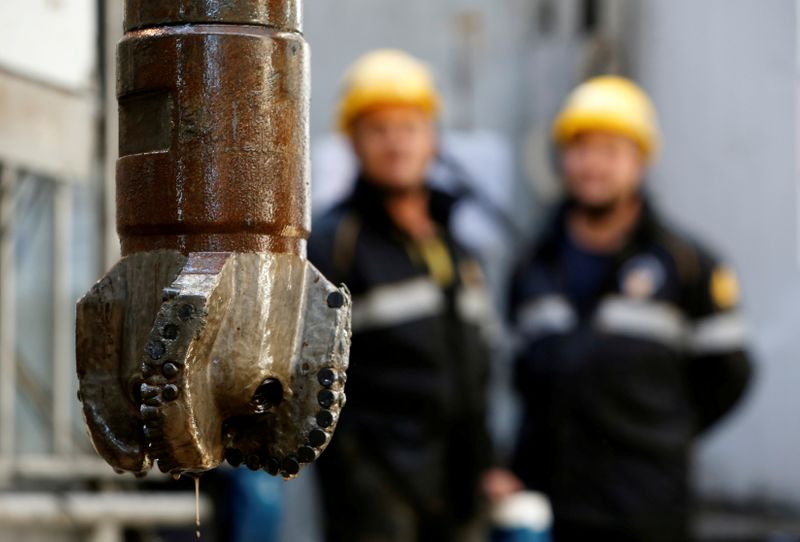By Olesya Astakhova and Katya Golubkova
MOSCOW (Reuters) - In just a week, Russia has to find ways to cut a fifth of its oil output under a deal to tackle the market glut and is looking at all options, including putting wells on repair and maintenance to abandoning them entirely and even burning oil, four oil industry sources said.
Russia, along with other members of the global oil alliance between the Organization of Petroleum Exporting Countries and non-OPEC members, agreed to jointly remove nearly 10 million barrels per day (bpd) from world markets, a tenth of total supply, starting from May 1.
Last week, the Russian energy ministry told oil companies to cut their production by a fifth to 8.5 million barrels per day to meet the OPEC+ deal.
Sources told Reuters earlier this month that the companies are targeting mainly mature fields where production is falling anyway.
Lukoil (MM:LKOH), with oil output at 1.65 million bpd, plans to shut down a number of fields in the northern region of Komi at its Ukhtaneftegaz production facility, a source familiar with the plan told Reuters.
Asked about Ukhtaneftegaz, Lukoil said that it did not plan to shut down its production units but was looking at options with "as limited as possible impact on (its) economic performance". It did not elaborate further.
Slavneft, a joint venture between Rosneft (MM:ROSN) and Gazprom Neft (MM:SIBN), is considering shutting down a number of fields at its Megionneftegaz unit in Khanty-Mansyisk region in western Siberia, another source said.
Two other oil industry sources said that inefficient wells and wells with low productivity were main targets for shut downs but the main method for cutting output would be to shut wells temporarily for repairs, not to shut them down indefinitely. New drilling will be suspended, too.
Repairing wells will allow companies to improve productivity - something they want to achieve post-cuts and as they do not want to lose a big portion of output indefinitely.
"Its true that demand is low but this is not a reason to put a lock on the fields: sometimes it is better to pump and (even) burn," the fourth source said. "Remember how oil production nearly halved in the USSR? It took a decade to restore it back."

Rosneft, Gazprom Neft, Tatneft, Slavneft did not immediately reply to Reuters requests for comments.